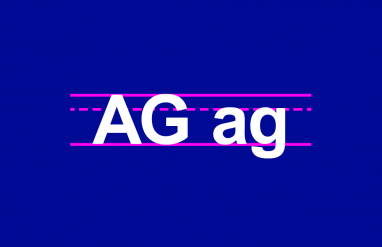When it comes to elementary students, learning and fun need to go hand-in-hand. That’s why we’ve collected 14 ELA learning games for elementary kids that focus on vocabulary, reading, spelling, and writing. Play them as a family and learn something new, too!
Family words!
Make a word up that originates with you!
- Using letter blocks or letter refrigerator magnets, spell out the name of a family member.
- Rearrange the letters to create a nickname for that family member (you don’t have to use them all!). For example, Nicholas could be rearranged to spell Nachos, which is a pretty great nickname.
- Come up with as many nicknames as you can. Who knows, maybe one will stick?
Sight word treasure hunt
This one works well with some basic sight words appropriate for your kid’s age.
- Write or type the words in large letters and cut the letters apart (or use sticky notes).
- Tape or stick the letters throughout the house.
- Give kids a list of the words and send them hunting to find the letters that match the spelling of the words on the list.
Letter dice!
This game requires a little bit of preparation, but the added tactile element makes it worth it.
- Put letters on dice (or make some using a template). You can make a variety of letters and use them all at once or swap them out periodically. Be sure to include all five vowels. Make three to five dice (you can use the same letter more than once).
- Roll the dice.
- See who can make the longest word and the most words from the letters available. Each player gets one point for each word they create and two points for the longest word.
To make this game more difficult, you can set a four-minute time limit for each round.
Muffin tin word toss
It’s a ball toss with words!
- Using a muffin baking tray, fill each cup with a word written on a small piece of paper.
- Have kids take turns tossing a small ball, trying to land it in one of the cups.
- When they get a ball in, have them read and/or define the word.
- Ask them to think of an opposite word or a word that is related to the word their ball just landed on.
You can mix this one up for kids of all ages by increasing the complexity of the words and adding fun twists like having them give antonyms or synonyms for the words or asking them to use the words in a sentence.
Word pals!
One of the perks of this game is that it’s a good way to practice both spelling and pattern recognition.
- Make up a list of words that have something in common. They could all come from the same spelling family (e.g., -at, like bat, hat, and mat) or have some other common characteristic (e.g., animals, like dog, cat, and bear).
- State one word. You can write it on construction paper or show a picture so kids know what the word means. Then, move on to the next word. You can write this one down or show a picture again, as well.
- After two words, the player has the chance to guess what the common characteristic is. If they can, they get three points. If they miss, read another word and have the player guess again.
- The player gets one fewer point with each round. For example, if they guess it after three words, they get two points, and so on.
Slap the word!
This is a good one to get some of the yoo-hoos out.
- Write several words (9-12) that rhyme in large letters on sheets of computer paper or other scratch paper. There should be one word per piece of paper.
- Lay out the papers on the floor or a table. You may want to put something underneath the papers like a towel.
- Give each of the players something to hit the board with, like a flyswatter, a wooden spoon, or a drumstick.
- Make up a quick poem using 2 of the rhyming words. The first player to slap the words in your poem gets a point.
- Have the next person make up a poem and let the slapping commence!
To make this game more challenging, use longer words or say them faster.
Picture it!
Put your drawing skills to the test by illustrating a common idiom. (It’s not as easy as you’d think!)
- Have each family member choose an idiom from the list above or another familiar idiom.
- Fold a sheet of paper in half. On one side, draw a picture of the literal meaning of each idiom. On the other side, draw a picture of what people understand the idiom to mean.
- Take turns guessing which idiom each person drew!
Simon capitalizes
This version of the popular children’s game only requires a list of vocabulary words and space to move!
- Work with your child to compose a list of words and names related to astronomy and space exploration.
- Designate one adult to be “Simon” and stand a distance away from other family members.
- Simon states a direction about the capitalization of one of the words from the list. For example: “Simon says to take two steps forward if the word Jupiter is capitalized.”
- The other players can move forward if the statement is true and begins with “Simon says.” However, if they are incorrect or they moved without hearing “Simon says,” they must take a step backward.
- This game continues until someone reaches Simon, proving themselves to be an expert on capitalization!
Planet tag
This is a chance for everyone in the family to show off their knowledge of comparative and superlative adjectives while getting a workout!
- Assist your child in drawing each planet in the solar system roughly to scale. (Put that chart from Day 1 to good use!) Have them label the drawings.
- Arrange the drawings in planet order on the floor or ground, with ample space between them.
- One family member at a time is the clue giver, while the other family members stand at a designated home base.
- The clue giver asks question using a superlative or comparative word, such as, “Which is the biggest planet in the solar system?” (Jupiter) or “Which planet is closer to the Sun, Venus or Mercury?” (Mercury).
- The other family members will race to the correct drawing.
- The first person to reach the correct planet will receive a point and give the next clue.
Sentence builders
Write down the names of several nouns, verbs, and adjectives on strips of paper.
- Separate the piles by part of speech and place in paper bags or hats.
- Have each family member select a noun, verb, and adjective at random and come up with a sentence using all three.
- To keep the fun going, have family members draw or act out their sentence!
Compound word jigsaw
Help your child understand how compound words work by creating and playing this matching game!
- Write the following words on index cards: rain, bow, snow, flake, sun, light, summer, time, over, cast, hail, stone. Have your child identify the meaning of each word.
- Place the cards face down on the table in a random order.
- Take turns flipping over two cards at a time. If the smaller words form a compound word, read aloud and define the word, then take the cards out of play.
- The player with the most pairs wins!
Compound word visual puzzles
Using sticky notes or index cards with tape, have your child label items and places in your home that are compound words, such as bookcase, bedroom, and toothpaste.
Turn these compound words into visual puzzles!
- Take one of the compound words from your home, such as raincoat.
- Fold a sheet of paper in half.
- Draw pictures of the shorter words on each half of the page. (for example: a cloud with raindrops on one side and a coat on the other)
- Have another family member guess the compound word!
Word part jigsaw
Help your child understand how word parts work together by creating and playing this matching game!
- Write the following word parts on index cards: telescope, unmanned, mid-flight, equator, diameter, cosmonaut, scientist.
- Have your child identify familiar word parts and explain what they mean. (For any that you’re unsure about, search Dictionary.com for the word or word part.)
- Guide your child to cut each word in two, between its root and affix.
- Place the cards face down on the table in a random order.
- Take turns flipping over two cards at a time. If the word parts form a word, read aloud the word and take the cards out of play.
- The player with the most pairs wins!
Tic-tac-toe!
With a few changes, this classic game becomes a chance for vocabulary practice.
- Write a variety of common verbs and adjectives on index cards or strips of paper. Place the words in a bowl, box, or hat.
- Decide which player will be X (synonyms) and which player will be O (antonyms).
- The first player chooses a word and must name a synonym before marking the board.
- The second player chooses a different word and must name an antonym before marking the board.
- The first player with three in a row wins!





















